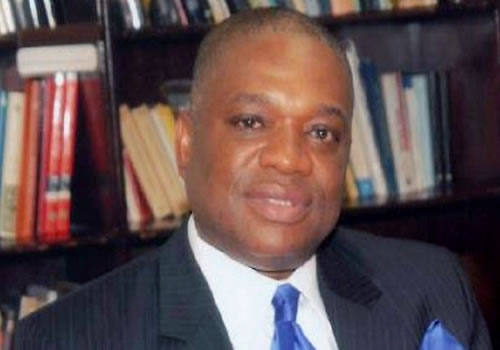Justice Inyang Ekwo of a federal high court sitting in Abuja, on Friday, issued a seven-day ultimatum to the counsel representing the Economic and Financial Crimes Commission (EFCC), Mr Rotimi Jacobs (SAN), to show cause on why he should not be disqualified from further prosecuting a former governor of Abia State, Senator Orji Uzor Kalu in the N7.2 billion money laundering charges preferred against him by the commission.
The Judge ordered the senior lawyer to file a motion on notice within seven days to show cause why he should be allowed to continue to handle the trial of the corruption charges brought against Kalu.
ALSO READ FROM NIGERIAN TRIBUNE
- FRSC Requires You To Have A Razor Blade In Your Vehicle. Here’s Why
- Top 10 Business Ideas In Nigeria You Can Start With 100,000 Naira
- Fulanisation, Islamisation Agenda Going On In Nigeria —Obasanjo
- How To Detect Fake Bank Alerts
- EFCC lawyer faces disqualification from ex-Gov Orji Kalu’s alleged N7.2bn fraud trial
- EFCC lawyer faces disqualification from ex-Gov Orji Kalu’s alleged N7.2bn fraud trial
Justice Ekwo, who made the order while ruling on a motion filed by Rotimi Jacobs Chambers seeking the transfer of the trial of the former governor to the Lagos State division of the court, held that the senior lawyer and his team have engaged in gross abuse of the court process in the ways and manners the prosecution was being handled.
He ordered that the motion on notice would be adopted on October 31, 2022, during which the court would determine the fate of the senior lawyer one way or the other.
The Judge dismissed the request to transfer the trial to Lagos on the ground that only the chief judge of the federal high court, Justice John Tsoho can do so in line with section 98 of the administration of criminal justice act 2015.
In the alternative, Justice Ekwo held that the prosecution was at liberty to go back to the Supreme Court to seek for review of the order that remitted the trial to the Federal High Court and added that granting the request will lead to a breach of Section 235 of the 1999 constitution and challenge the finality and supremacy of the Supreme Court of Nigeria.






